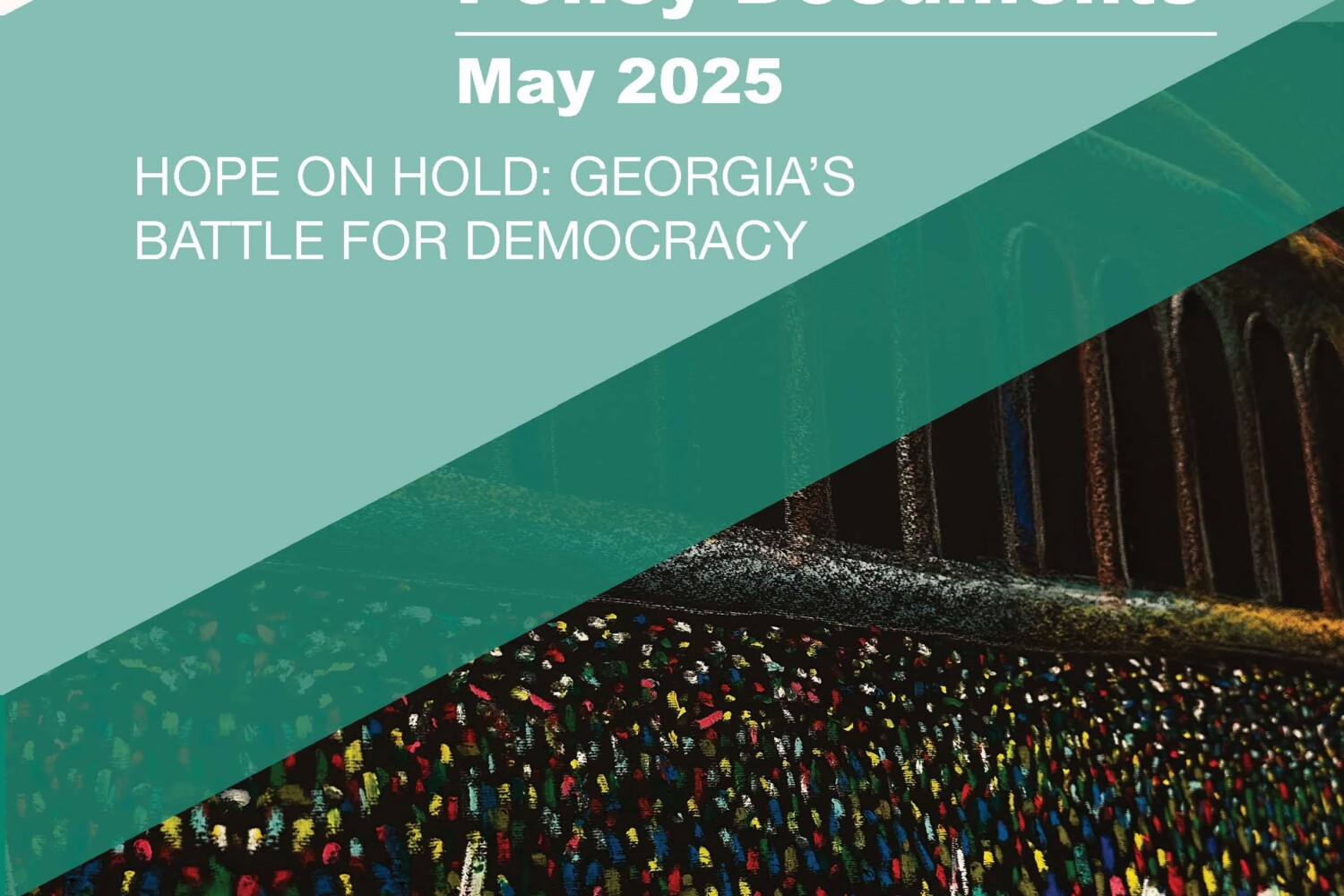2025-05-25 14:13:11
In the third decade of the 21st century, the global wave of democratic decline has become increasingly evident, and Georgia is no longer an exception to this unsettling trend. Once hailed as a model of democratic aspiration in the post-Soviet space, Georgia is now on a dangerous path of authoritarian consolidation. The country faces growing internal and external pressures that threaten the institutional foundations of its democratic progress. What makes this moment especially critical is not only the pace of increasing authoritarianism, but also the nature of its normalization — a gradual erosion of democratic norms cloaked in the language of stability, national sovereignty, and legalism.
According to Freedom House’s Freedom in the World 2024 report, global freedom has been declining for the 18th consecutive year, with more countries experiencing democratic erosion than democratic gains.[1] The Varieties of Democracy (V-Dem) likewise notes that electoral autocracy remains the most common regime type, and that indicators of liberal democracy — such as judicial independence and media freedom — are under attack in a majority of countries.[2]
In recent years, Georgia has witnessed a systematic weakening of checks and balances, growing political polarization, increased executive overreach, and an alarming trend of judicial capture. Civil society organizations and independent media, once pillars of Georgia’s democratic resilience, have come under increasing attack, both rhetorically and institutionally. The controversial “foreign agents” bill, passed by Georgian Parliament in May 2024, has drawn sharp condemnation from civil society, Western governments, and international organizations, including the European Union and the U.S. Department of State.[3] Despite massive public protests and repeated calls for transparency and accountability, the ruling party has moved forward with legislation that undermines core democratic freedoms and echoes the tactics of authoritarian regimes in the region.[4]
These concerns were only deepened in 2025, with the introduction of a revised “Foreign Agents Registration Act” (FARA), which expanded the scope of the original bill and introduced stricter reporting requirements, criminal penalties, and vague language that grants broad discretionary powers to state authorities. Simultaneously, a new law regulating foreign grants significantly curtailed access to international funding for NGOs, think tanks, and independent media. These developments represent a further attempt to delegitimize external support for democratic development and to isolate civil society from its global partners. Critics have rightly noted that these laws mirror legislation used by authoritarian regimes to stigmatize dissent and dismantle civic oversight under the guise of transparency and national security.[5]
At the same time, the geopolitical context has added layers of complexity. Russia’s ongoing war in Ukraine has fundamentally altered the strategic landscape of Eastern Europe and the Caucasus. Georgia, which has long positioned itself as a pro-European, reform-oriented state, now risks drifting further from its Euro-Atlantic trajectory. EU accession talks remain uncertain, NATO integration is stalled, and Georgia’s foreign policy discourse has increasingly turned inward and isolationist. The resulting vacuum is being filled not by democratic innovation, but by nationalist rhetoric, elite entrenchment, and state-sponsored narratives that cast democratic oversight as foreign interference.
Once again, the Georgian Institute of Politics is pleased to present a collection of 2025 policy documents addressing current and actual political processes, challenges, and prospects in Georgia. This compendium emerges at a moment of acute political crisis and authocratization. It is both a response to recent developments in Georgian politics and a call to action for domestic and international stakeholders who still believe in Georgia’s democratic promise. The contributors to this volume provide a rigorous, evidence-based assessment of the mechanisms, drivers, and consequences of the recent authoritarian turn in Georgia, alongside practical policy recommendations aimed at halting or reversing this trend.
This compendium is intended as a tool for that action. It is not merely an academic exercise but a policy resource, a platform for dialogue, and a roadmap for reform. By bringing together diverse voices and perspectives, it seeks to foster a more informed, more strategic, and ultimately more effective response to rising authoritarianism Georgia faces today. The continued erosion of democratic norms in Georgia poses serious risks not only to its domestic stability, but also to regional security and international credibility. These developments represent existential risks for civil society and free media, endangering the future activities — and potentially the very existence — of organizations like GIP.
Yet, there is still reason for cautious optimism. The resilience of Georgian civil society, the continued mobilization of young people, and the country’s enduring popular support for Euro-Atlantic integration offer sources of hope. As recent mass protests have shown, the Georgian people remain deeply invested in the values of freedom, accountability, and democratic governance. What is needed now is coordinated action — both domestic and international — to support these democratic aspirations and to push back against the forces of regression.
__________________________________________







